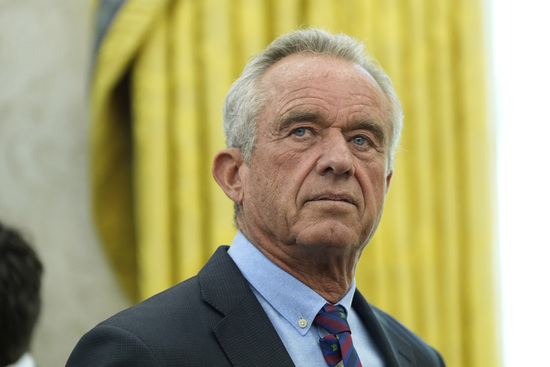Trump revives drug-pricing plan—but it’s mostly smoke and mirrors
President Donald Trump is trying to revive a familiar campaign trick: cutting prescription drug prices. On Sunday, he announced plans to reintroduce a “most favored nation” policy aimed at capping U.S. drug costs at the lowest price offered in other countries.
The executive order, signed on Monday, directs the U.S. trade representative and Commerce Department to go after foreign countries that “suppress” drug prices at America’s expense. It also instructs the Department of Health and Human Services to pressure pharmaceutical companies into offering their “best prices” to U.S. consumers, and calls on the Food and Drug Administration to consider expanding drug imports from nations with lower-cost drugs.
If negotiations stall, Trump has tapped Health and Human Services Secretary Robert F. Kennedy to enforce the policy, which could set U.S. drug prices to match those paid by other wealthy countries. Trump, never one to understate things, suggested the move was a populist victory.
“Our Country will finally be treated fairly,” he wrote on Truth Social. “Healthcare Costs will be reduced by numbers never even thought of before. Additionally, on top of everything else, the United States will save TRILLIONS OF DOLLARS.”

But like many Trump policies, this one sounds better on paper than it works in practice.
For starters, it’s unclear which drugs will be affected. Officials said the scope will be broader than Trump’s attempt to do this in his first term, which was limited to Medicare Part B drugs, but questions remain about whether the plan can legally reach into Medicaid or private insurance markets.
“If this touches all drugs for all people, it’s far more ambitious, but the ripple effects are far more uncertain,” Tricia Neuman, executive director for the program on Medicare policy at KFF, told NBC News. “I would expect the drug industry to throw every legal argument at this proposal.”
If the policy ends up being narrow again, most Americans won’t notice much difference at the pharmacy counter. ABC News reported that common prescriptions filled at retail pharmacies likely won’t be impacted at all.
And while Trump is now promising drug prices will fall by 59%, this is the same guy whose tariffs made flowers, groceries, and toys more expensive. Forgive Americans if they don’t hold their breath.
Progressive Sen. Bernie Sanders of Vermont, a longtime advocate for health care reform, pushed back on the plan, saying that while he agrees that drug costs are too high in the U.S, “[t]he problem is not that the price of prescription drugs is too low in Europe and Canada. The problem is that the extraordinarily greedy pharmaceutical industry made over $100 billion in profits last year by ripping off the American people.”
“Further, as Trump well knows, his executive order will be thrown out by the courts,” Sanders added.
Naturally, the pharmaceutical industry is also pushing back. PhRMA, a major industry lobbying group, slammed the move as a “bad deal” for Americans and warned that cutting into profits could hurt future drug research and development.
“Importing foreign prices will cut billions of dollars from Medicare with no guarantee that it helps patients or improves their access to medicines,” CEO Stephen Ubl told ABC in a statement. “It jeopardizes the hundreds of billions our member companies are planning to invest in America.”
Other experts agree there is no silver bullet.
Analysts with the University of Southern California said the policy can’t override the basic economics of the global drug market, where U.S. consumers effectively subsidize the rest of the world. Their research suggests that many drug makers may pull out of less profitable overseas markets in order to keep their U.S. costs high.
“In sum, everyone loses,” they concluded.
Still, Trump’s rhetoric on drug prices might hit a nerve. More than 3 in 4 U.S. adults say medications are unaffordable, according to a 2022 KFF poll. Trump has long accused pharmaceutical companies of “getting away with murder,” and that frustration cuts across party lines.
But when you peel back the layers, this looks less like serious policy and more like campaign theater. It may grab headlines—and could slightly boost his sagging approval rating—but it’s unclear whether it’ll actually lower your bill at the pharmacy.
